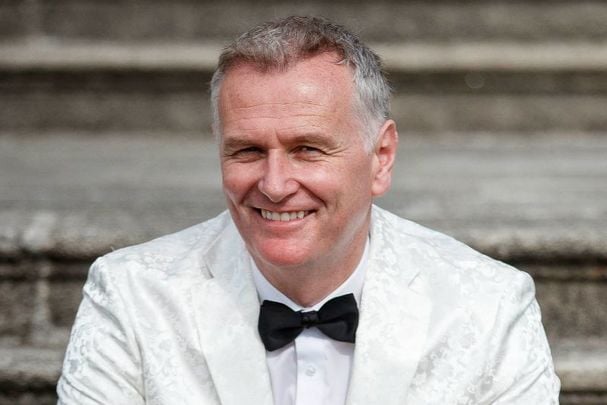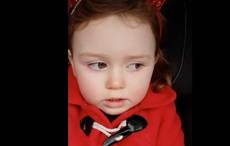When we previously put out a list of the most mispronounced Irish names the response from our readers was astounding. It seems to be a pet peeve of the Irish that our names go mispronounced all the time.
As Irish living abroad our vowel-heavy, Irish pronunciation names tend to confuse those not au fait with the names and lead to hilarious mispronunciations and some seriously strange names written on Starbucks cups!
Trawling through our reader's responses we put together another list of mispronounced Irish names, how to pronounce them and a little history behind these ancient Irish names.
Pádraig
Pronounced: "paw + drig" or "paw + rik"
Variants: Patrick, Pádraic, or Páraic
This one’s a little tricky because of the fada above the “a” which drags out the sound and also the among of constants going on. It’s no wonder foreigners have a problem with this one.
History: The Irish for Patrick. The name comes from the Latin word patricius meaning “noble born.”
Most famously associated with the patron saint of Ireland Saint Patrick. He was born in Britain around 373 AD and was brought to Ireland as a slave at the age of seven, possibly by Niall of the Nine Hostages. Patrick was forced to guard sheep on the Slemish Mountains in County Antrim for six years he had a vision urging him to convert his captors. He escaped to France where he trained as a priest before returning to Ireland where he banished the snakes and converted the population to Christianity.
Éimear
Pronounced: “ee + mer”
Variants: Emer, Éimhear, Eimhear, or Eimer.
The curse of too many vowels strikes again! This one just seems overly complex at first sight but isn’t so tough to get your mouth around.
History: The name possibly comes from the Irish word for “swift”, eimh.
In Irish legend, Éimear was the wife of the hero Cúchulainn. She possessed the six gifts of womanhood, being beauty, voice, speech, needlework, wisdom and chastity.
Daithí
Pronounced: “dah + hee”
Variations: David, Daithi, Dahey, or Dahy.
This one isn’t so hard for those who have Irish as it’s close to the word “dathanna”, meaning colors. Anyway, it’s nowhere near David so again foreigners are forgiven for finding this name taxing.
History: Daithí is an old Irish name meaning "swiftness, nimbleness." Daithi was the last pagan king of Ireland and ruled from 405 AD to 426 AD. He had twenty-four sons.
Sorcha
Pronounced: “sor + aka” or “surk + ha”
This one shouldn’t be too hard but the versions people come out with are amazing. From adding in syllables to making the name sounds like a “cha, cha, cha” beat. This is one that’s fairly tough.
History: From the Irish word sorcha meaning “bright, radiant, light.” The name was popular in the Middle Ages, the name has become popular again in recent years.
Aengus
Pronounced: “eng + iss”
Variants: Aengus, Aonghus, or Oengus.
Just think of the Scottish breed of cattle and Angus cuts of beef. That’s the one. This one seems pretty simple!
History: Aengus comes from “aon” meaning excellent and “gus” strength or vigor. Aengus was the god of love and of youth, a member of the Tuatha Dé Danann. His words were as sweet as honey, attracting bees and birds. He fell deeply in love with a beautiful girl he saw in a dream and passed through many trials, including turning himself into a swan, to win her love. The poet William Butler Yeats immortalized his search in “The Song of Wandering Aengus.”
Eilish
Pronounced: “E-leesh”
Variants: Elizabeth, Eilis, Elis, or Elish.
Well hello vowels! Again this is quite a hard one to approach.
History: This girl’s name is of Irish and Hebrew origin. Eilish means "God is my oath."
Cian
Pronounced: “key + in”
Variants: Kian, Kane, Kean, or Keane.
The hard “c” here tends to throw people off and so a lot of the first attempts at this name come out as “Sigh-an”.
History: The name Cian comes from the Irish word for ancient or enduring. In legend, Cian Mac Mael Muad was the son-in-law of Brian Boru who led the armies from the province of Munster to victory over the invading Vikings at the Battle of Clontarf in 1014, a battle in which both he and Brian were killed.
Oonagh
Pronounced: “ou + na”
Variants: Oona or Una.
Yep. Vowels! And lots of them but this one should be relatively easy to figure out. We emphasize should be here.
History: The name comes from the Irish word “uan”, meaning a lamb, or it may come from the Latin meaning “one,” hence it is sometimes translated as “Unity.” In legend, Oonagh was “Queen of the Fairies” who had long golden hair which reached to the ground and she was also the wife of Fionn Mac Cool.
Oisín
Pronounced: “osh + een”
This ones is pretty tricky between another vowel overload and the fada on the “i” creating the “een” sound.
History: The son of the legendary warrior Fionn Mac Cool and the goddess Sive. His mother was turned into a deer by the Dark Druid and she reared him in the forest until he was seven years old. When Fionn was out hunting he found the child and recognizing him as his son, gave him the name Oisin "little deer."
Ciara
Pronounced: “kee + ra"
Variations: Keera, Kiera, Keira, or Kira.
Just like Cian this hard “c” throws people off. A lot of the time people think it is pronounced like the word tiara or even sierra.
History: The feminine form of Ciaran, from the Irish ciar meaning "dark" and implies "dark hair and brown eyes." St. Ciara was a distinguished seventh-century figure who established a monastery at Kilkeary, in County Tipperary.
* Originally published in 2016, updated in Oct 2024.




Comments